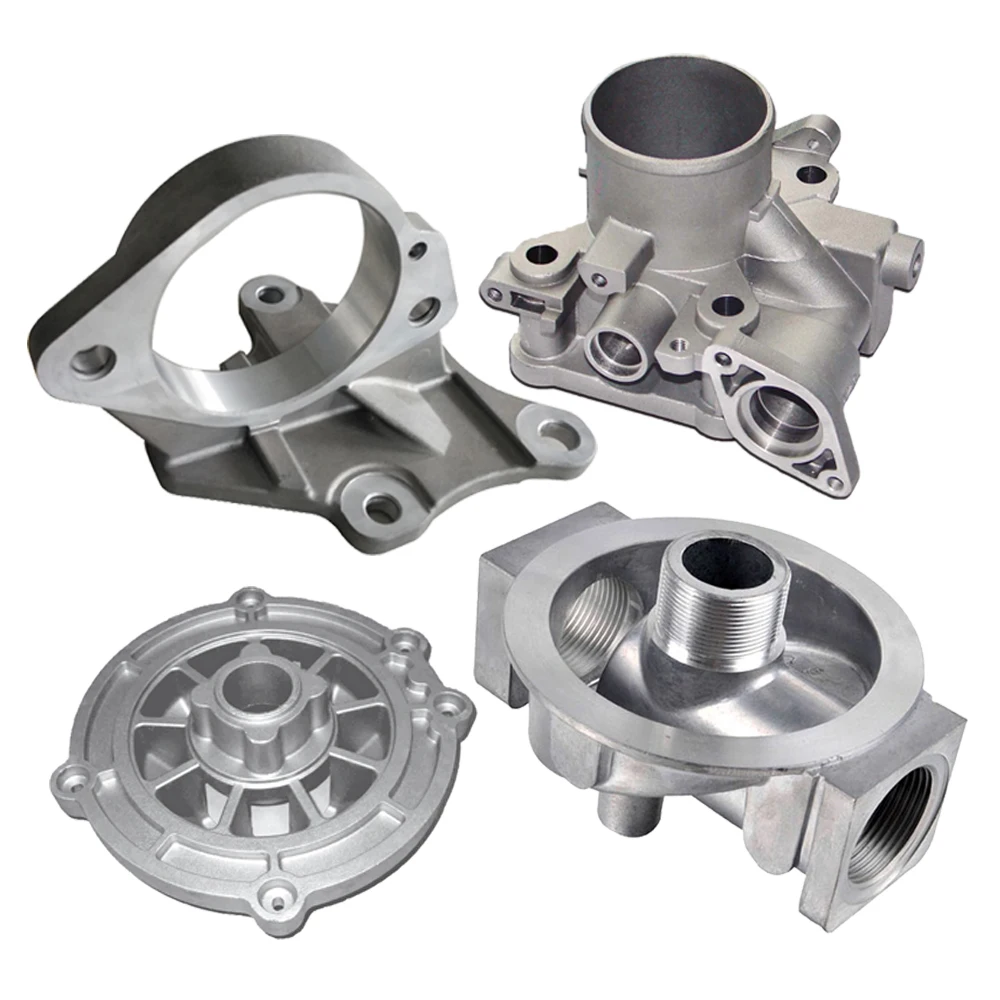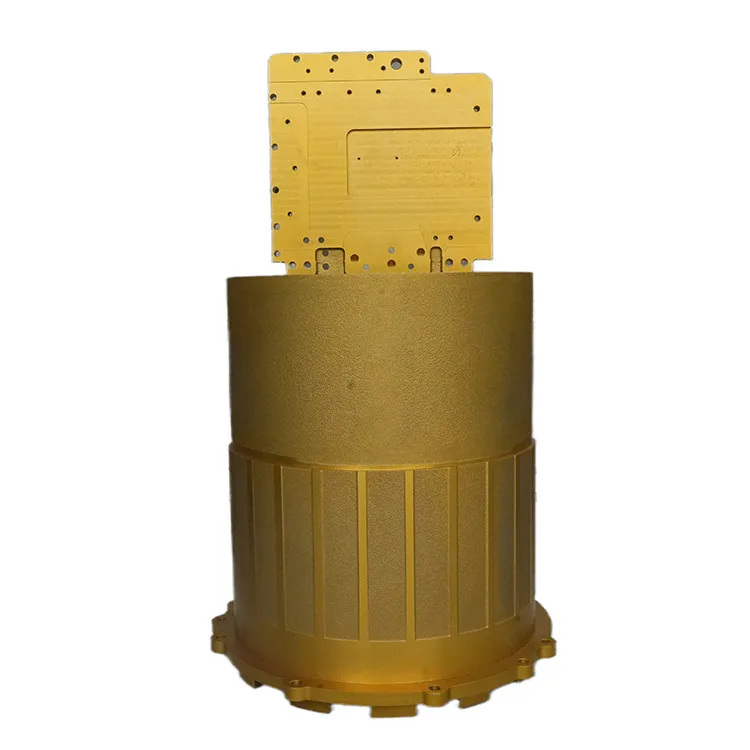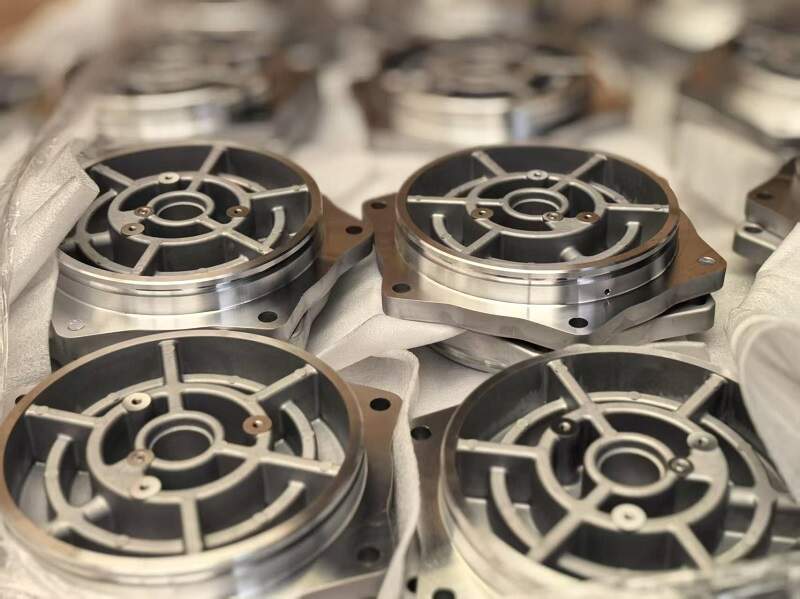The impact of Precision aluminum casting in creating modern machinery
Exactly How Shop Provider Enhance Manufacturing Effectiveness and Quality in Industrial Applications
Shop services play a vital duty in improving production effectiveness and quality across numerous industrial applications. By applying advanced metal spreading methods, these solutions guarantee parts are produced with precision and consistency. This not only minimizes preparations yet also minimizes waste, fostering much better cooperation between makers and foundries. The impact of top notch components on operational efficiency increases crucial inquiries about the future of industrial manufacturing. What developments lie ahead in this progressing landscape?
The Function of Factory Providers in Streamlining Production Processes

Factories typically give proficiency in alloy growth, enabling makers to use advanced products that boost product performance. The cooperation between suppliers and foundries promotes a better understanding of manufacturing needs, bring about optimized processes and boosted item layouts. By leveraging factory services, producers can attain higher flexibility, adjust to altering market demands, and preserve competitiveness in the sector. On the whole, the function of shop solutions is important in promoting an extra efficient and economical manufacturing landscape.
Advanced Technologies in Factory Procedures
Cutting-edge technologies are changing shop procedures, significantly boosting productivity and precision. Automation plays a necessary duty, with robotic systems enhancing repetitive jobs such as molding and material handling. In addition, innovations in computer-aided layout (CAD) and computer-aided production (CAMERA) systems allow foundries to create intricate geometries with better precision and minimized product waste.
The integration of man-made intelligence (AI) and device learning enhances high quality control by keeping an eye on processes in real-time and anticipating potential problems before they happen. The use of sophisticated materials, such as light-weight alloys and compounds, further boosts the performance qualities of cast items.
3D printing modern technology is transforming prototyping and tooling, allowing for rapid modification and minimized lead times. Collectively, these advanced innovations not just boost production efficiency but additionally ensure that the final products fulfill rigorous quality standards, placing foundries at the center of modern industrial applications.
Minimizing Lead Times Through Efficient Shop Practices
Efficient foundry methods play a crucial role in decreasing preparations within manufacturing atmospheres. By applying streamlined manufacturing processes and progressed organizing methods, suppliers can enhance process and enhance source allotment. These renovations not just increase output however also add to total operational performance.
Streamlined Manufacturing Procedures
Streamlining production procedures is important for lowering preparations in the manufacturing sector. Efficient shop practices, consisting of optimized workflows and resource administration, play an important role in accomplishing this objective. By reducing waste and improving communication amongst groups, shops can greatly boost their functional performance. The execution of standardized treatments additionally adds to regular top quality and faster turn-around times, enabling suppliers to react more swiftly to market demands. In addition, the assimilation of sophisticated technologies, such as automation and real-time monitoring systems, aids in determining bottlenecks and facilitating prompt treatments. On the whole, an emphasis on streamlined manufacturing procedures not only increases preparations yet also improves the overall competitiveness of industrial applications, guaranteeing that items fulfill client assumptions successfully.
Advanced Organizing Techniques
Effective manufacturing procedures normally lead makers to discover sophisticated organizing methods as a way to further minimize preparations. By utilizing sophisticated formulas and software, shops can maximize process, aligning production schedules with need projections and resource schedule. Strategies such as Just-In-Time (JIT) scheduling decrease inventory costs while ensuring prompt material shipment, consequently improving functional performance. Additionally, incorporating real-time information analytics allows shops to anticipate prospective hold-ups and adjust timetables proactively. This flexibility not only enhances operations yet also increases overall performance. Collaborative planning with providers and clients can cultivate a more synchronized supply chain, more minimizing lead times. Inevitably, these innovative organizing techniques empower foundries to achieve higher performance and exceptional high quality in their production procedures.
Ensuring Precision and Quality in Steel Spreading
Guaranteeing precision and quality in metal spreading requires a thorough technique that includes every phase of the manufacturing procedure. This process begins with cautious style and design of the mold and mildews, guaranteeing they pop over here can stand up to the liquified steel's temperature and pressure. The choice of top quality basic materials is vital, as pollutants can jeopardize the end product.
Once the materials are prepared, specific temperature level control throughout melting and putting is fundamental to attain the preferred homes in the cast steel. Checking solidification and cooling rates further warranties dimensional accuracy and surface area coating.
Quality control methods, such as non-destructive screening and examination, are essential to identifying problems early while doing so. aluminum casting. Furthermore, employing knowledgeable employees that comprehend the nuances of metal casting adds considerably to keeping high criteria. Generally, these techniques collectively boost the dependability and performance of actors elements in different industrial applications
Minimizing Waste and Maximizing Source Use

Furthermore, recycling scrap metal within the shop itself can considerably reduce waste, changing by-products into useful sources. Lean making concepts additionally add to lose reduction by enhancing procedures and getting rid of unneeded actions, bring about more efficient procedures.
Regular upkeep of devices assurances peak performance, preventing breakdowns that can result in thrown away products. By concentrating on these approaches, shops not only decrease costs yet additionally contribute to lasting practices, straightening with the expanding need for ecologically accountable production methods in industrial applications.
The Competitive Benefit of High-Quality Components on the market
High-quality components provide a considerable competitive advantage in the factory market, where precision and durability are critical. Makers that prioritize premium products and workmanship can improve item performance and integrity, causing increased customer satisfaction. This advantage is especially evident in markets such as auto and aerospace, where component failure can have catastrophic repercussions.
Top quality parts often result in lower upkeep prices and extended product life expectancies, which can be enticing selling factors for prospective customers. As market needs grow for lasting and effective modern technologies, the emphasis on high quality becomes a lot more essential. Firms that purchase top quality foundry services not only improve their manufacturing processes yet also distinguish themselves from competitors that might sacrifice top quality for cost savings. As a result, the dedication to top quality elements ultimately translates into a stronger market setting and long-lasting organization success.
Regularly Asked Inquiries
What Sorts of Products Do Shop Services Generally Deal With?
Factory solutions generally collaborate with steels such as aluminum, iron, brass, and steel, along with numerous alloys. They also deal with materials like porcelains and compounds, dealing with diverse industrial needs and specifications in manufacturing procedures.
How Do Shop Services Impact Overall Supply Chain Administration?
Shop solutions greatly improve supply chain monitoring by simplifying product sourcing, lowering lead times, and ensuring consistent quality. Their ability to offer tailored options promotes collaboration among stakeholders, inevitably improving total operational efficiency and responsiveness in manufacturing.
What Industries Benefit Many From Factory Solutions?
Industries such as vehicle, construction, aerospace, and customer items considerably gain from foundry services. These fields depend on precision castings to satisfy rigid quality standards and improve their general manufacturing processes and item performance.
Are Factory Providers Lasting and Environmentally Pleasant?
Factory solutions can be eco friendly and sustainable, specifically when employing innovative modern technologies and processes - Aluminum Foundry. Developments such as reusing materials, decreasing discharges, and enhancing power use contribute to decreasing their ecological effect in industrial applications

How Can Companies Choose the Right Factory Provider?
Firms can select the ideal factory company by evaluating proficiency, manufacturing capabilities, quality accreditations, modern technology made use of, customer reviews, and sustainability methods while ensuring alignment with their details task requirements and long-term organization goals.
Factory services play a vital function in improving production effectiveness and top quality across numerous commercial applications. The cooperation between factories and suppliers fosters a much better understanding of manufacturing requirements, leading to maximized procedures and enhanced product styles. Effective foundry click here for more info techniques play an important role in reducing lead times within manufacturing environments. By utilizing innovative formulas and software program, factories can maximize workflows, straightening manufacturing schedules with demand projections and source availability. Companies that invest in premium foundry solutions not only enhance their manufacturing processes but additionally distinguish themselves from rivals who may compromise quality for expense financial savings.